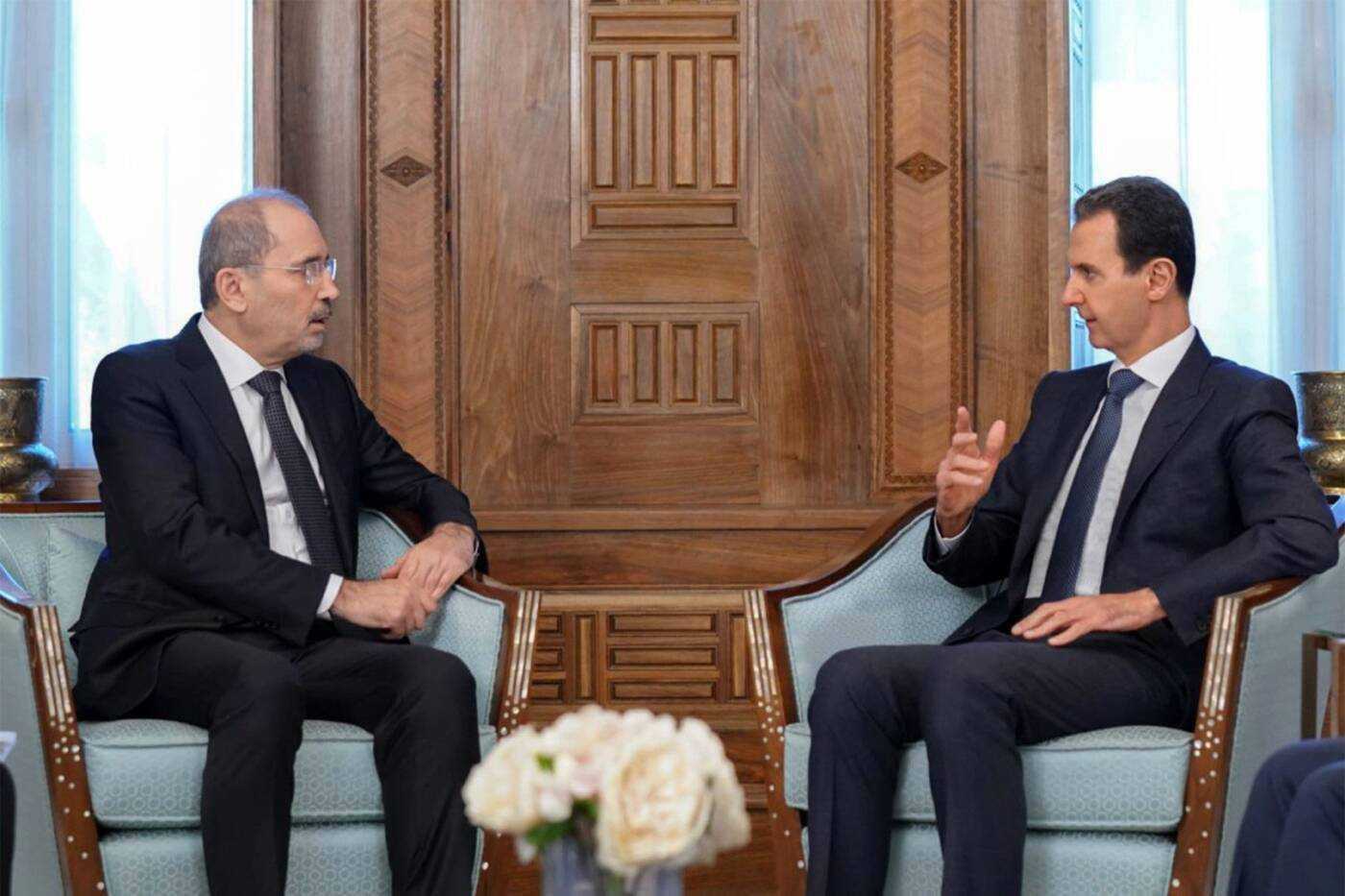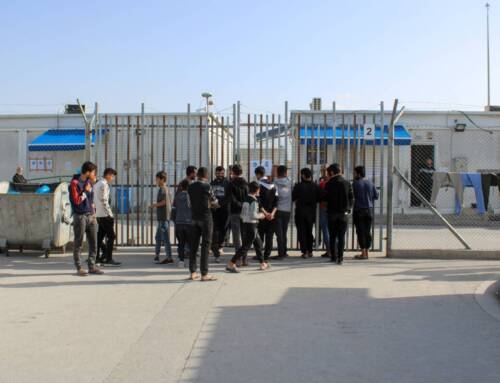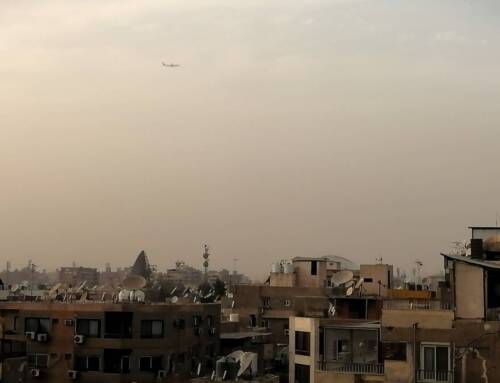‘Important, but difficult’: Can Jordan’s initiative to resolve the Syrian crisis succeed?
Jordan’s initiative for reciprocal engagement with Damascus to resolve the Syrian crisis could be a turning point in the two countries’ relations, which reached a breaking point after the Syrian revolution broke out in 2011.
6 April 2023
AMMAN — On March 21, Jordanian Foreign Minister Ayman Safadi announced his country’s “engagement with the Syrian government in a political dialogue aimed at resolving the crisis and addressing its humanitarian, security and political ramifications” at a press conference in Amman. Safadi said this “Jordanian initiative to resolve the Syrian crisis,” was taking place in full coordination with the United Nations (UN) and Arab countries.
Safadi’s statement followed his meeting with UN Special Envoy for Syria Geir Pedersen in Amman the same day. On February 15, Safadi also met with Syrian President Bashar al-Assad in the first formal visit by a Jordanian government official to Damascus since March 2011.
The Jordanian plan Safadi described is based on reciprocity: incentives in exchange for concessions. It could mark a turning point in the course of relations between Amman and Damascus, which were affected by the outbreak of the Syrian revolution in 2011 and reached the point of estrangement until a cautious rapprochement began in 2021. Jordan’s latest initiative appears to lay the basis for a new stage, the culmination of Arab and regional normalization efforts with Assad, who has begun to emerge from his isolation.
Through the initiative, Amman aims to resolve a number of key issues with Syria, including the return of refugees, smuggling and militias, Middle East Eye reported this week, quoting current and former government officials.
What is the initiative?
Jordan’s initiative to disentangle the Syrian crisis is not entirely new. The country previously proposed an informal plan along similar lines, but its latest efforts “appear serious this time,” a Jordanian official told Syria Direct. He cited the “Jordanian foreign minister’s active moves towards the Syrian file,” which reveals “real intent to restore relations between Amman and Damascus at a high level.”
In October 2021, Amman presented the United States (US) government with what became known as the “non-paper” plan. The document, later leaked to the media, laid out an informal vision for dealing with Syria on the basis of changing the regime’s behavior gradually by granting it incentives in exchange for Damascus taking measures leading to the implementation of UN Security Council Resolution 2254 regarding a ceasefire and political settlement on one hand, and stopping Iranian influence in Damascus on the other.
Not only was the non-paper plan not realized, but Jordan found itself facing active drug smuggling activity from Syria through its territory. This prompted Amman to take security measures along its borders last year, fearing the activity of Iranian militias accused of smuggling due to the vacuum left by Russia during its war with Ukraine.
As the Syrian revolution enters its thirteenth year, the priorities of the international community change due to the Russian-Ukrainian war, and support for Syrian refugees dwindles, the Syrian crisis has become a burden on Jordan, political analyst Amer Al Sabaileh told Syria Direct.
Amman faces a number of thorny issues, including a decline in overland trade and an increase in the frequency of drug and weapons smuggling over the 375-kilometer border between the two countries. As a result, Amman has revived its reciprocal initiative in coordination with the United Arab Emirates (UAE), the second country—after Oman—to visit Assad since Syrian protests broke out in 2011.
Under the “step-for-step” initiative, Amman is waiting for Damascus to take positive steps towards the region in order to return it to “the Arab embrace” and extricate it from Iranian hegemony, Al Sabaileh said. At the same time, he thought it unlikely for Assad to offer “concessions satisfactory to the international community, foremost of which is the United States of America, which opposes Russia’s policies and its open war against the West.” Russia, alongside Iran, is Damascus’ most important ally.
Assad welcomed the inauguration of two new Russian bases during his latest visit to Moscow in mid-March, Al Sabaileh noted. “So long as Assad continues to deepen his relations with the Russians, any Arab moves will be ineffective, because they will be subject to an elusive American blessing.”
Underscoring that, the US State Department said in March that Washington would not normalize its relations with the Assad regime, and did not encourage others to do so. The Treasury Department also recently imposed new sanctions on two of Bashar al-Assad’s relatives as part of what has become known as the “Captagon War.”
But Haytham Manna, a prominent Syrian dissident and the founder of the Scandinavian Institute for Human Rights, sees Washington’s statements as a reflection of the importance of Amman’s moves. They reveal “American concern that the Jordanian-Arab initiative will bear fruit,” he told Syria Direct.
Contrary to Al Sabaileh’s reading, Manna expected Assad to facilitate any Arab initiative because “making concessions to the Arabs is not considered a defeat.” He cited the development of relations between Damascus and Abu Dhabi after the UAE reopened its embassy in Syria in 2019.
“The Jordanian initiative will not necessarily be ideal or successful, but it is an attempt that could open doors to a solution,” Manna said. In any event, it does not represent recognition of Assad, but rather “negotiations, the fate of which will be determined by the parties’ concessions.”
Opposition to returning the Syrian file to Arab countries, Manna said, “prolongs the destruction” and keeps Syria in the orbit of Iran, Russia, Turkey and their interests in the country.
Why did Amman act?
In September 2021, Jordan chipped a hole in the wall of isolation surrounding Damascus, and re-engaged with the Syrian regime at high levels. It began with a meeting between Jordan’s Chairman of the Joint Chiefs of Staff, Major General Yousef Hunaiti, and Damascus’ Minister of Defense, General Ali Ayyoub, in Amman on September 19. Just over a week later, Jordanian Prime Minister Bisher al-Khasawneh received a Syrian government delegation that included the Ministers of Economy, Water Resources, Agriculture and Electricity.
Relations reached their highest level, at the time, on October 3 of the same year, when Jordan’s King Abdullah II received a phone call from Bashar al-Assad in which the two discussed relations between their countries and ways to strengthen them. The call coincided with the completion of an agreement to resume flights between Amman and Damascus.
But rapprochement between the two countries had hardly borne fruit when Russia withdrew from southern Syria due to its preoccupation with the war in Ukraine. Amman increasingly worried that Iran and its proxies would fill the vacuum, and captagon flowed into Jordan across its rugged northern and eastern borders. “Made in Syria” became linked to the production and export of drugs, while before it was associated with goods, food and cotton products in Jordanian markets.
“If the regime were able to impose absolute control over its borders and shoulder its responsibilities towards them, Jordan—which is fighting the drug war alone–could reach understandings with one party responsible for border security, rather than negotiating with different groups,” former Director of Public Security, Major General Hussein al-Hawatmeh, told Syria Direct.
Dealing with a regime “whose nature we know, good and bad,” is in Jordan’s interest and “better than the emergence of immature leaders whose policies and behavior we are ignorant of,” al-Hawatmeh said. The continued conflict in Syria has also become “a fertile climate for the growth of terrorist groups and various factions, which does not align with the interests of the higher state.”
Economic and demographic considerations are also reasons for Jordan to open up to Damascus once more. Jordan hosts some 1.3 million refugees, including around 667,000 registered with the UNHCR, at a time when the country’s economy is deteriorating. Rates of poverty and joblessness are on the rise, with unemployment at 24 percent and low monthly incomes of 260 Jordanian dinars ($366), in addition to the depletion of natural resources.
An opinion poll conducted by the Center for Strategic Studies in October 2021 showed that 71 percent of Jordanians, out of a sample of 1,208 people, favored the return of Syrian refugees to their country of origin, provided that economic and security conditions improved.
Jordan believes the success of its initiative would “create the necessary conditions for the voluntary return of refugees,” as Foreign Minister Ayman Safadi said during his meeting with his Syrian counterpart, Faisal Mekdad, last September. From the reopening of the Syrian-Jordanian border in 2018 to the end of July 2022, only about 46,000 refugees returned, including 5,500 from the Zaatari refugee camp.
Meanwhile, trade movement between Jordan and Syria in 2022 was three times less than it was in 2011, according to figures provided to Syria Direct by Khalil El Haj Tawfiq, President of the Jordan Chamber of Commerce. In 2011, the volume of Jordanian exports to Syria was 181 million Jordanian dinars ($255 million), in exchange for 268 million dinars of imports ($377.8 million). In 2022, exports were less than 70.5 million dinars ($99.4 million), compared to 46 million dinars of imports ($64.8 million).
Both Jordan and Syria are also transit points for exports to other regional and international markets. The success of Jordan’s initiative would restore transit trade momentum, and push both sides to reconsider lists of goods exchanged between them and facilitate the entry of products in both directions.
‘Important, but difficult to implement’
In mid-March, the Syrian revolution completed its twelfth year. More than 13 million Syrians are living in exile, struggling amid a decline of the international community’s support for refugees and host countries, and the absence of its own plans for the crisis. Meanwhile, Syria is sagging under the weight of international sanctions and domestic conflicts, as foreign interference expands, particularly by Iran, Russia and Turkey.
The current state of affairs is due to “two contradictory international trends for dealing with the regime, resulting in setbacks to efforts aimed at resolving the Syrian crisis,” Zaid Eyadat, Director of the Center for Strategic Studies, told Syria Direct. “Washington and its allies insist that there is no solution without the regime stepping down, holding it accountable and refugees returning to Syria. Russia, Iran and Turkey, meanwhile, are pushing for solutions that serve Assad and prolong his survival.”
“The Syrian issue has become similar to its Palestinian counterpart, in terms of the international issues imposed upon it,” Eyadat added.
This stalemate has led to the growing conviction among Arab countries that “the regime is here to stay, and dealing with it is inevitable,” Eyadat said. This was demonstrated by both Oman and the UAE receiving Assad, in conjunction with the Jordanian initiative that Lebanon and Qatar support. Saudi Arabia has also announced the start of talks with Damascus on “resuming the provision of consular services.”
“Jordan, through its initiative, seemed to tell Assad: Despite what you have done, we are ready to deal with you and recognize you,” Eyadat said. But “this came on condition of the regime providing concessions and agreements on refugee issues, Iranian and Russian interference and other issues that affect Amman.”
The success of the reciprocal initiative depends on Damascus being convinced that it is in its interest to change the current situation of “the division of Syria into occupied territories,” as Eyadat put it. Some of these territories are controlled by Assad, while “Iran occupies Damascus and the south of the country, Turkey and Russia control its north and west and Israel controls the Golan [Heights].”
But its success also depends on external powers, which is what makes that prospect “difficult,” Eyadat said. “Russia and Iran are the ones who decide Assad’s moves,” while “the two countries capable of resolving the conflict are the US and Israel, but they are not interested in resolving it.”
Jordan’s effort, driven by Amman’s desire to stop the damage caused by the continued conflict in Syria, is “important, but difficult to implement,” he concluded.
**
This report was originally published in Arabic and translated into English by Mateo Nelson.







